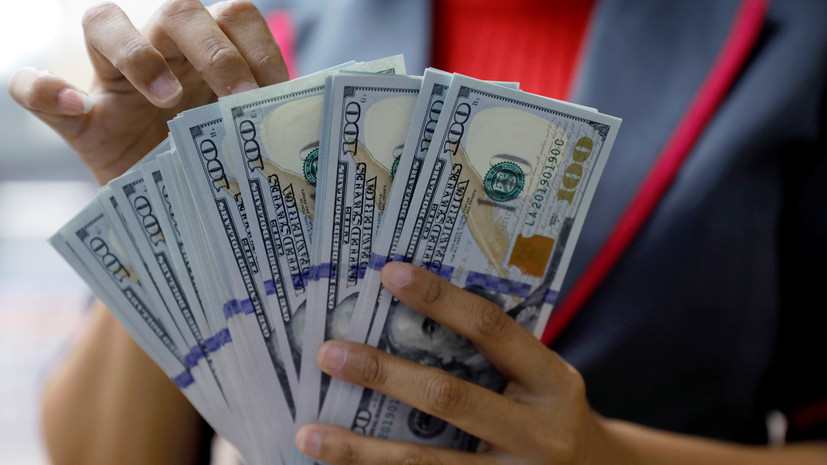According to the forecast of the Danish investment bank Saxo Bank, in 2021, amid the consequences of the coronavirus pandemic, many countries may think about introducing an unconditional basic income (BCD).
We are talking about a guaranteed amount of funds, which is paid by the state to a person, regardless of his type of activity, social and economic status.
According to analysts, the shift of large numbers of people to tele-employment as a result of the pandemic and the simultaneous development of technology could lead to the disappearance of a number of professions, as well as a noticeable decrease in the number of jobs in the next few years.
In these conditions, the introduction of a guaranteed income will have to support the citizens left without employment.
“The risk of complete social stratification is leading to the realization that the implementation of COVID-19-related income loss benefits was not just a panic-driven response, but was the beginning of an ongoing unconditional basic income,” analysts say. Saxo Bank.
It is curious that the prerequisites for the introduction of the BDB appeared even before the spread of the coronavirus.
RT was told about this by Mikhail Dorofeev, chairman of the board of the KPK Obnovlenie.
“Several years before the pandemic, atlases of endangered professions were published.
At the state level, even then in a number of countries they began to prepare experiments to introduce an unconditional basic income as a measure to alleviate potential tensions in society.
The events of 2020 have significantly accelerated these processes, ”the expert explained.
Note that back in 2016, the Swiss authorities considered the introduction of basic income.
According to the initiative, the citizens of the country were to receive about $ 2.5 thousand a month.
However, in the course of the national referendum, the Swiss voted against the idea by a majority of votes (76.9%), since the country's leadership would have to cut social benefits and raise taxes to pay funds from the budget.
Also, an experiment with the introduction of basic income was carried out in Finland in 2017–2018.
As part of the initiative, about 2 thousand officially registered unemployed began to receive € 560 per month.
Payments continued even if program participants found work.
In 2020, the Finnish social security agency Kela summed up the results of the experiment.
Initially, the country's authorities hoped that an unconditional payment would force citizens to actively seek work.
However, the effect was not as pronounced as expected.
So, from November 2017 to October 2018, recipients of basic income worked 78 days on average, and those who received regular benefits - 73 days.
At the same time, the psychological state of the participants in the experiment improved, who in any case received monthly payments.
As Mikhail Dorofeev suggests, the United States may introduce an unconditional basic income in the near future.
According to the expert, the likelihood of such a development of events increased as a result of Joe Biden's victory in the presidential elections.
“The policy of the elected president is more focused on reducing the level of social inequality than that of his predecessors.
At the same time, more than 10 million jobs lost after the pandemic remain in the United States.
In addition, the full recovery of the country's labor market in the coming months is far from obvious, ”the expert explained.
Note that the idea to introduce a minimum guaranteed income was also voiced in Russia.
So, in September 2020, the chairman of United Russia, Dmitry Medvedev, instructed the United Russia faction in the State Duma to discuss the initiative with members of the government and trade unions, as well as create a working group to modernize legislation in the field of employment.
According to him, the proposal requires the most careful analysis from an economic and organizational point of view.
Double effect
According to experts, the introduction of basic income can have an ambiguous economic effect.
As Vyacheslav Askalepov, director of product development for the Rocket Work platform, told RT, the initiative will allow people to abandon low-paid jobs.
As a result, companies and businesses will be forced to raise wages.
“The presence of an unconditional basic income will push many citizens to study or retrain.
In an environment where the automation of labor threatens to deprive people of their jobs, this will give people time to find themselves in a renewed labor market.
In addition, the popularity of part-time vacancies will grow, many will decide to open their own business, ”the expert said.
According to the specialist, the measure will also reduce the cost of maintaining social institutions and reduce the level of bureaucracy.
Since payments will be made to the entire population, there will be no need to identify the citizens who need support.
At the same time, the initiative can significantly increase the burden on the budget, analysts say.
Moreover, experts believe that the payment of basic income will reduce motivation to work and result in a drop in employment.
“In the best case, this measure will ease tensions in society and raise the standard of living. In the worst case, it can completely deprive the initiative of those who have become recipients of such aid from the state, and lead to a further exacerbation of contradictions between various strata of society. As a result, in addition to the additional burden on the budget, countries will also receive negative side effects, ”noted Mikhail Dorofeev.

